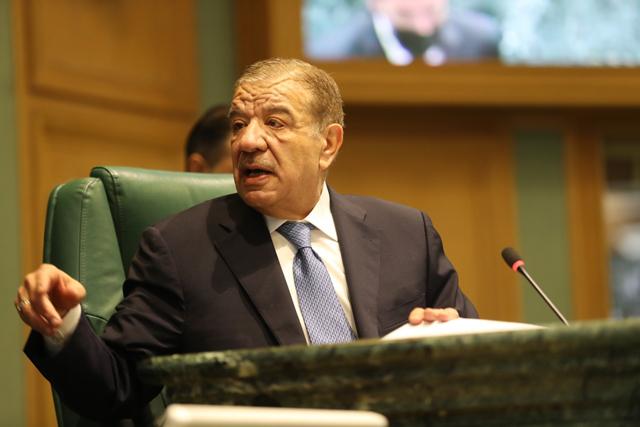You are here
Lower House starts deliberations over draft budget law for FY23
By JT - Feb 13,2023 - Last updated at Feb 13,2023
AMMAN — The Lower House on Monday embarked on deliberations over the draft general budget law for fiscal year 2023.
During a session chaired by Lower House Speaker Ahmad Safadi, attended by Prime Minister Bisher Khasawneh and Cabinet members, several MPs said that the draft law coincides with a period of global suffering from an unprecedented recession, which has repercussions on the national economy, the Jordan News Agency, Petra, reported.
Deputies reviewed the general economic state of the Kingdom, and noted the difficult economic conditions experienced by citizens, which necessitate job creation to reduce the constantly rising poverty and unemployment rates that threaten citizens’ future and social security.
The lawmakers also urged support for the Jordan Armed Forces-Arab Army and the security services, and called to increase the salaries of security personnel, public sector workers, and military and civil pensioners.
They also reviewed several service demands from their constituencies. The MPs called for increased financial allocations to governorates implementing service projects such as building schools and hospitals, and conducting road maintenance and sanitation schemes. They also called for reducing feed prices to support livestock breeders, expanding rural services, supporting universities, and empowering governorate councils to carry out their mandates.
MPs called for combating financial and administrative corruption in all forms and holding anyone involved in corruption cases accountable. The lawmakers also called for preventing occupational exploitation, reconsidering appointments to leadership positions and broadening the role of the Audit Bureau.
MPs noted that this budget “does not differ” from previous years. This year’s budget carries an additional fiscal deficit, a rise in indebtedness, and shows the cost of public debt interest in excess of JD40 billion, a high figure when compared to GDP.
Lawmakers also criticised the figures mentioned in the budget bill, which did not achieve economic growth, especially since these figures were based on tax revenue. The MPs demanded that taxes be reduced and “radical solutions” be sought to address the country's economic crisis to mitigate the people’s difficult economic circumstances.
The MPs praised the Royal directives towards the economic and political modernisation, as well as the public sector, which they described as a roadmap for the government.
They affirmed their support for the Hashemite leadership in defending the issues of the nation, including the Palestinian cause and the Hashemite Custodianship over Islamic and Christian holy sites in Jerusalem.
The lawmakers encouraged the private sector to create a fund in cooperation with the banks to protect investments and prevent them from leaving the local market.
The MPs pointed to the danger of tax evasion and the need to combat it, calling for the completion of the restructuring and integration of independent institutions, and enhancing the role of municipalities in service provision, as well as developing and modifying investment policies.
They also drew attention to the need to increase pensions, and called for supporting the agricultural sector, which was significantly affected during the COVID-19 pandemic, and the national industries through reducing production costs.
During the first day of discussions, 22 deputies and representatives from six parliamentary blocs spoke, according to Petra.
Related Articles
AMMAN — The Lower House on Tuesday continued deliberations over the 2022 draft state budget and the 2022 draft budgets of independent public
AMMAN — For the second consecutive day, the Lower House continued deliberating over the draft general budget law for fiscal year 2025 during
AMMAN — The Lower House on Wednesday continued deliberations over the 2022 draft state budget and the 2022 draft budgets of independent publ

















